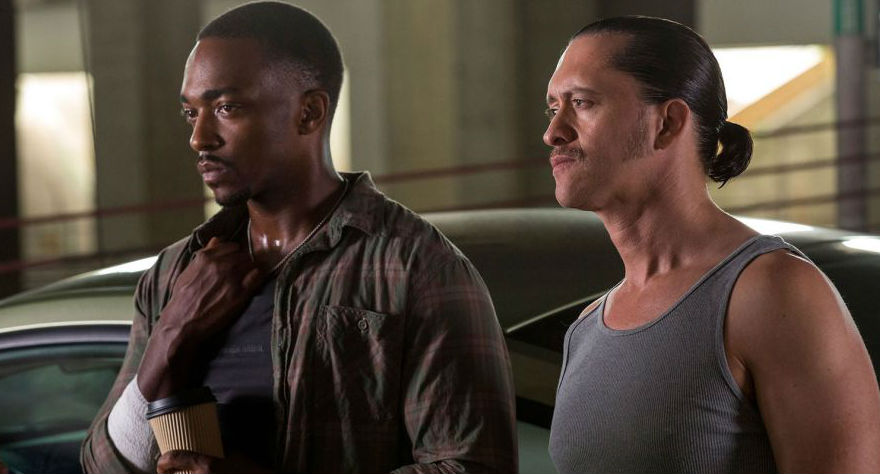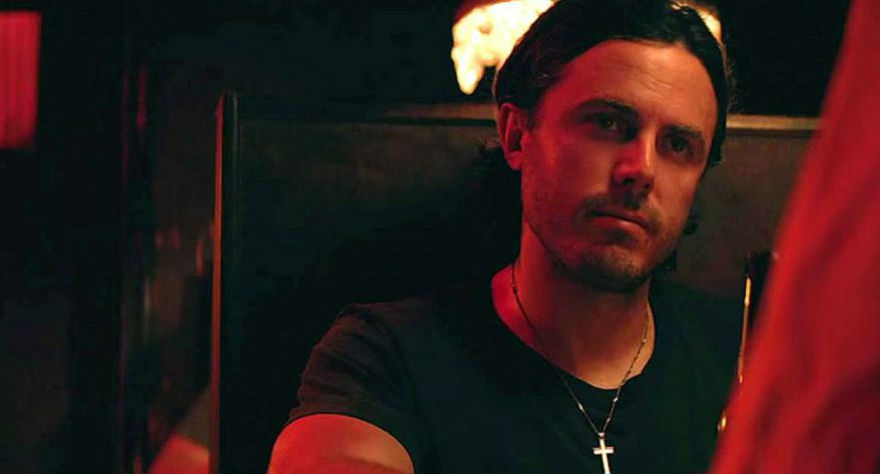John Hillcoat Talks ‘Triple 9,’ Real-Life Violence Informing Onscreen Violence

A genre adventurer of sorts, filmmaker John Hillcoat has made a western (The Proposition), a post-apocalyptic drama (The Road) and a period gangster movie (Lawless) in his career thus far. Now, with Triple 9, he tackles the crime thriller genre, assembling an A-list cast (including the likes of Kate Winslet, Chiwetel Ejiofor, Clifton Collins Jr., Casey Affleck, Woody Harrelson, Norman Reedus, Aaron Paul, Anthony Mackie and more) to tell a gritty, urban tale of crooked cops, bank heists, double-turns and gang violence. Set in Atlanta, the film holds authenticity as its highest priority as the dozen-or-so protagonists maneuver, duck and dodge around each other until the bloody, bitter end.
In a roundtable interview, I spoke with Hillcoat about the film, which opens tomorrow nationwide.

You’ve expressed your desire to elevate genre movies. How did you elevate the crime thriller with Triple 9?
I feel like this genre, in recent years, has become very unrealistic. Initially, there were the golden years when film noir was created and all these fantastic, murky shades of grey were created. In the ’70s, they took all of these great genres and shook them up and gave them this kind of gritty realism. That’s what I miss in contemporary crime thrillers. The characters always seem to be chasing the plot. I wanted to find something where you didn’t know what was coming. In a lot of this genre, I feel like I already know what’s going to happen before it happens. [I also wanted to show] shades of grey instead of black and white. Again, in this genre, it’s become, “there’s the good guy, there’s the bad guy.” With all of that, I also wanted to bring it into a contemporary landscape. The world of crime out there in urban cities has completely changed.
When this script crossed your desk, was it something where you were looking to do something in this vein? What got your neurons firing?
I’d been looking for a contemporary crime thriller to do for well over a decade. My problem was, every time I’d read something, I felt like I could predict what was coming around the corner. My manager and producer brought a first-time writer and showed me this script because they knew I wanted a crime thriller that was a bit more unpredictable and grounded in reality.
There’s a lot to keep track of in this movie. It’s a controlled chaos. As I was watching the movie I thought, the casting is so key because these characters have to make big impression in just a small amount of screen time.
That was the single biggest challenge out of anything, to assemble that cast and line it up to where they all had a window available at that one time. It was beyond any rubik’s cube out there. The intention was to create a milieu and world you’re immersed in as opposed to the classic, two-hander thing. I love a film like Nashville where you’re just with characters very briefly but you feel like you could disappear into their lives. Life is like that too in a crowded urban environment. I wanted to get that sea of humanity. That’s what was great about this cast—they’re all so different and bring such idiosyncratic detail. We were conscious of that going in. They had to make interesting choices and create layers because of exactly that: screen time.
I was impressed by the action mostly because the things that are happening onscreen are unpredictable and chaotic and unexpectedly change location frequently. But I never felt lost, geographically. That must be incredibly difficult to pull off.
It took immense planning. We had whole maps of neighborhoods, we had meetings with different departments, we had models made. We had different visual references made for different departments saying, “Look, here’s an accident. We want it to look like that.” There was a lot of research as well. I was working with a very gifted second-unit action guy who did the Bourne Identity films and has an immense knowledge of that. We love realism and accidents, so we’re always on the lookout for how we find those and reference those in each situation and make it work cinematically.
I think you’ll know what I mean when I say this—I feel like you as a filmmaker respect the act of violence.
I take violence very seriously. I feel like there are no real victors. There’s always an element of chaos and, psychologically, no one comes out unscathed. I think that’s the key, for the actors to feel very much like it’s their choice or whatever they do that creates the situation, the build-up to it. Then, it’s how they process it afterward. When I’m working with an actor on these sort of things, I’m looking more at the before and after than the actual incident. We are human, and that’s the thing I try to do, get that human experience instead of just seeing bodies flying apart. That doesn’t mean anything. And you’ve just reminded me, that’s something we were very conscious of: We wanted to make every single death that happens matter. It’s a significant event every time. In crime thrillers, that’s really not considered. The body count is just, like, very gratuitous.
I thought there was strategic value to the decision of killing off a particular actor early on in the movie. Audiences are very familiar with this person. It was kind of like a Janet Leigh in Psycho thing.
That was very intentional. We wanted to create a situation where even the characters would suddenly take this situation very seriously. It’s that feeling of not knowing who’s next. And yet, we all know—and they know as characters—that they’ve chosen this life and nothing’s going to change that. They kind of know that, eventually, they won’t be retired on a tropical island. That’s not really what comes of this. And they never know when that moment is going to happen.
You’ve said before that you’ve witnessed violence growing up and have been a victim of violence. Do you think, as a filmmaker, that you have to have had that hands-on experience to portray violence onscreen authentically?
I think it’s definitely helped and given me more respect in trying to get to the truth of the matter and take it more seriously. I’m very influenced by other movies, but I do love that kind of one foot in reality. That has, unfortunately, [happened to me]. But I would never perscribe that as a prerequisite for film students. [laughs] “Doing a crime film? Shoot yourself in the leg!” [laughs] I wouldn’t wish that upon anyone but it certainly has impacted the work I do very much.
